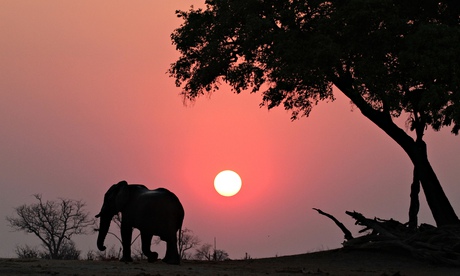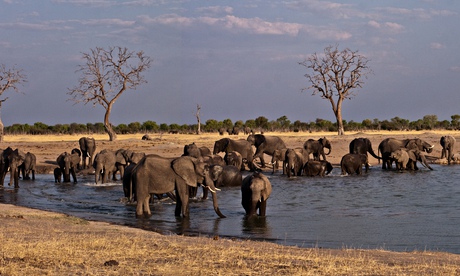Read the Foreign Office advice on travel to Kenya and you’d be forgiven for avoiding the place altogether. Words like terrorism, piracy, kidnapping and violence are splattered through it like bullets. Although this advice refers to the coast and Somali border, the entire country is suffering. According to Kenyan government statistics, British visitor numbers have fallen by more than a third since 2012 (from 185,976 to 117,201 in 2014).
Paul Goldstein, a guide for Exodus and co-owner of Kenya-based Kicheche Camps, says: “If the tourists don’t go on safari, there are no eyes on the ground and the locals don’t get paid. The poachers move in.”
Goldstein was shocked last December to see a dead elephant, tusks removed by poachers, in the Maasai Mara park: this would have been unthinkable a year earlier.
Proving a link between the drop in visitors and a rise in poaching is difficult, but the fact that tourists, by their presence, help protect wildlife is something Zimbabwe learned the hard way when the country descended into economic chaos between 2003-2008 and visitors stopped arriving. Poaching for meat, and money, soared. Mark Butcher of Imvelo Safaris, who runs camps there says he saw the heavy price paid by the wildlife: “When people are hungry, they don’t worry about conservation. The wildlife gets left in the care of poorly motivated and ill-equipped bureaucrats.”
When Tanzania closed its border with Kenya between 1977 and 1983, visitors to the Serengeti dropped from 70,000 a year to around 10,000. The loss in revenue caused a 60% decline in anti-poaching patrols and a rapid rise in poaching. Rhino disappeared, elephant numbers dropped and meat poaching skyrocketed. Similar things are now happening in northern Mozambique, where a government-backed survey has estimated that half of the country’s elephants (almost 10,000) have been illegally killed in the past five years.
Like many in the safari business, Butcher thinks Kenya’s conservancy movement is its brightest hope. This has seen large areas of Kenya protected by small landowners pledging land to communal conservation zones. Franchised safari camps pay landowners according to the number of tourists they take. “Communities set aside land for wildlife because it’s financially in their interests,” says Butcher. “But in the absence of tourists, poachers give the incentives.”
A report in March by the United Nations World Tourism Organisation (UNWTO) highlighted the scarcity of data on the economic value of wildlife tourism in Africa, but surveyed data from 48 government bodies and 145 tour operators from 31 African countries and concluded that poaching “threatened the tourism sector’s long-term sustainability”. However, only 50% of the operators were directly funding anti-poaching initiatives or engaging in conservation projects.
Encouraging them, and getting tourist numbers back up is vital. Jonathan Scott, who presents the BBC’s Big Cat Diary and has lived in Kenya for 40 years, says: “If the world is serious about helping to prevent poaching, we need those tourist dollars.”











